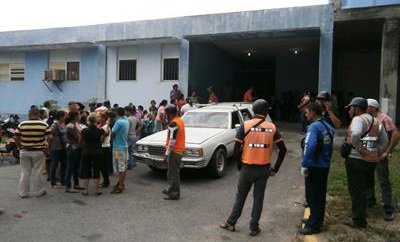A reported clash between criminal groups the Rastrojos and the Urabeños left eight dead along the Colombia-Venezuela border, which, if true, would suggest that the power struggle between these two organizations in this strategic region remains intense.
On November 10, the Colombian ambassador to Venezuela, Luis Eladio Perez, confirmed that eight people were massacred in the Venezuelan border state of Zulia over the weekend, reported Blu Radio. Initial reports were mixed regarding the number of people of killed, as well as the identities of the perpetrators and the victims.
According to Venezuela’s La Nacion, an unidentified source linked to the investigation into the massacre said that those killed were members of the Rastrojos, and that the perpetrators were the Urabeños. Police in the Venezuelan state of Tachira said a Rastrojos commander and his deputy were among the victims, reported La Nacion.
Police separately told media off the record that the victims were thought to be members of the Aguilas Negras — another Colombian criminal group — or the Rastrojos, who worked extorting farmers in the region, reported El Pais.
Blu Radio reported that Venezuelan authorities were still working to establish whether the victims and perpetrators were members of these criminal groups.
According to El Pais, six of the victims displayed signs of torture and multiple bullet wounds. Meanwhile, two cadavers found nearby had been beheaded.
Five of the victims have been identified as Colombian nationals, reported El Tiempo.
InSight Crime Analysis
While the sequence of events surrounding the massacre remains unclear, it wouldn’t be the first time that Colombian criminal groups have clashed along the Venezuelan frontier. Both the Rastrojos and the Urabeños are known to have a significant presence in the Venezuela border region, and have been disputing the territory for several years. At one point, the Rastrojos was the most powerful BACRIM (from the Spanish acronym for “criminal bands”) in the region, but the group has been in decline since their top leadership was captured in 2012. The Urabeños, meanwhile, has established a significant power base in the border area, setting up training camps in Venezuela and allegedly recruiting Venezuelan nationals into its ranks.
SEE ALSO: BACRIM in Venezuela Profile
BACRIM groups are known to operate in Venezuelan border states including Zulia, Apure, and Tachira — where another BACRIM-attributed massacre took place earlier this year. The border region is highly strategic for drug traffickers looking to control routes through Venezuela — the main transit hub for Colombian cocaine — as well as for contraband runners.

